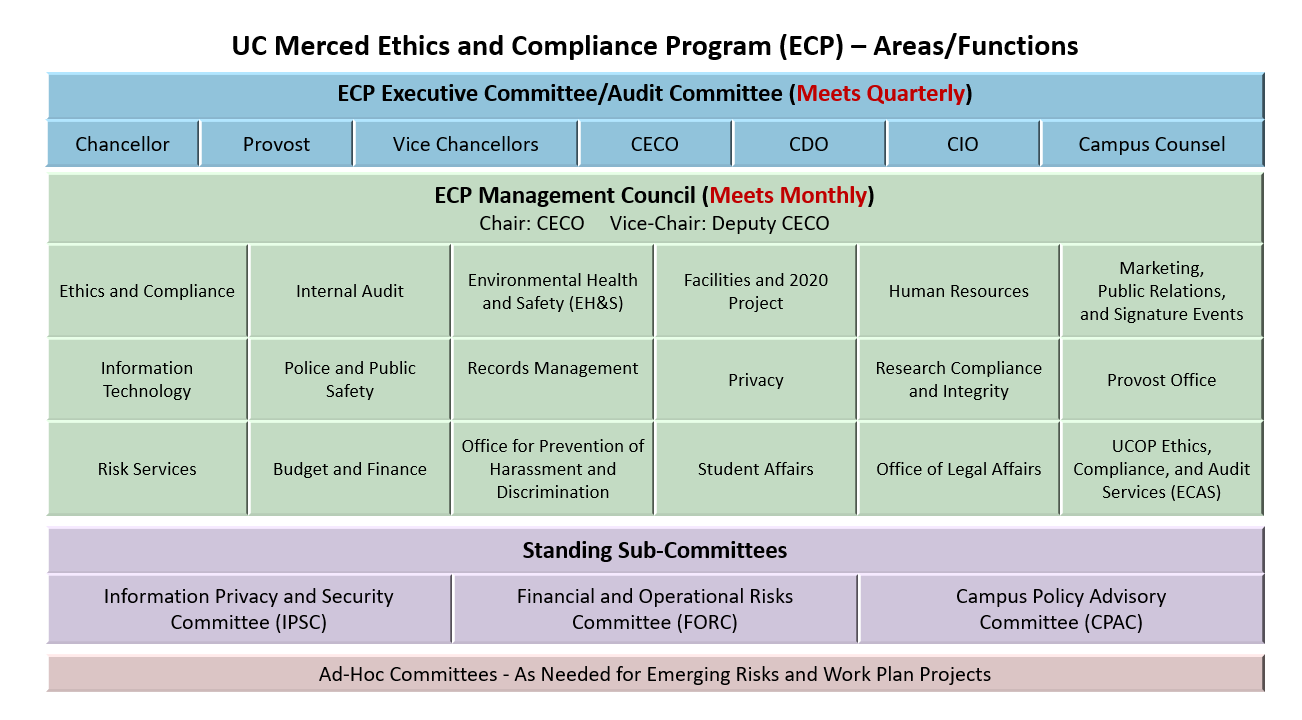The UC Merced Ethics and Compliance Program (ECP) is committed to advancing the highest standards of ethics, integrity, and accountability at UC Merced to ensure compliance with applicable federal, state, local laws, regulations and policy. The ECP is administered with emphasis on seven essential elements of an effective compliance program including:
- Adherence to Standards of Ethical Conduct, policies, and procedures
- Designation of a campus compliance officer and compliance committees
- Effective training and education
- Open lines of communication
- Auditing and monitoring activities
- Enforcing standards through well publicized disciplinary guidelines
- Corrective action plans and continuous improvement
The Chief Ethics and Compliance Officer (CECO) is responsible for administration of the program. The CECO convenes ECP Management Council meetings monthly and ECP Executive/Audit Committee meetings quarterly to discuss and share significant risk and controls issues, work plan progress and other compliance and audit activities across campus.
Standing sub-committees ensure we provide sufficient opportunity for risk discussion in diverse compliance venues, but with a structured connection to the Council where significant issues may be raised to appropriate levels in a timely manner.
Information Privacy and Security Committee (IPSC) is an advisory committee that advises ECAR and other units on issues of privacy, information and information security.
Financial and Operational Risks Committee (FORC) brings together members from various operational and financial risk areas to discuss goals and emerging financial and operational risks across campus.
Campus Policy Advisory Committee (CPAC) ensures each major policy area has a point of contact to move new and revised polices forward, and to ensure adequate and appropriate communication and training mechanisms are in place for proper roll-out of policy/procedure expectations.
Ad hoc committees are formed when needed to coordinate and develop work plans for specific high-risk issues, identify and recommend options for decision support on risk mitigation or corrective action, and facilitate implementation of corrective action or improvement.

